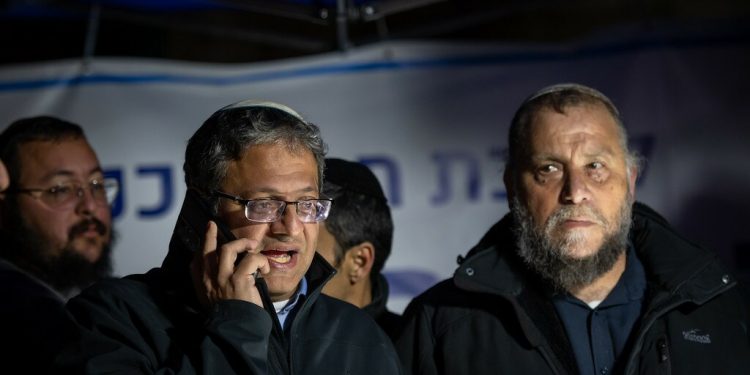Amidst escalating tensions in the Middle East, Israel’s National Security Minister, Itamar Ben Gvir, has publicly advocated for a preemptive military strike against Hezbollah. This stance comes in the wake of heightened conflict in the region, particularly concerning the ongoing war in Gaza.
Ben Gvir’s call for action, which goes against the Israeli government’s current strategic approach, signals a significant shift towards a more aggressive posture in the region. The minister’s statement emphasizes the need for a proactive strategy to counter Hezbollah’s influence and activities, particularly in southern Lebanon. This recommendation aligns with Ben Gvir’s known far-right views and his reputation for hardline stances on security issues.
The situation is further complicated by recent events, including a suspected Israeli drone strike in southern Lebanon that resulted in the death of a senior commander in Hezbollah’s elite Radwan force. This incident has raised fears of a potential full-scale war, adding to the already volatile situation in the Middle East. The strike, combined with the ongoing crisis in Gaza where hundreds of Palestinians have been reported killed or wounded, underscores the delicate and dangerous nature of the current geopolitical climate.
As the region grapples with these challenges, U.S. Secretary of State Antony Blinken is reportedly traveling the area in an attempt to prevent the outbreak of a wider war. The involvement of international actors like the U.S. highlights the global implications of the conflict and the urgency for diplomatic solutions to prevent further escalation.
Ben Gvir’s remarks reflect a growing divide within the Israeli political and military establishment regarding the best approach to address the threats posed by groups like Hezbollah. While some advocate for diplomatic efforts and strategic patience, others, like Ben Gvir, push for more immediate and forceful military responses.
This development continues to draw significant attention both domestically and internationally, as stakeholders monitor the situation closely for any signs of escalation or shifts in policy that could impact the broader stability of the region.



























